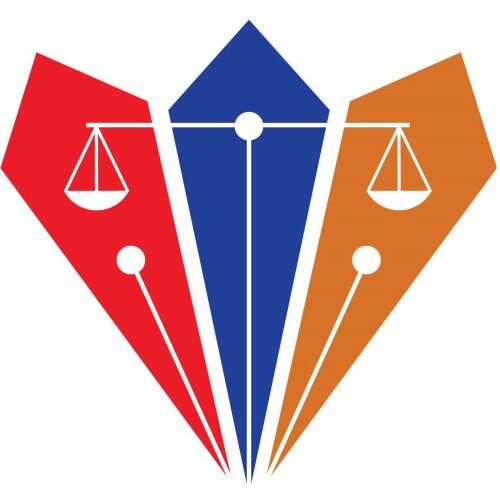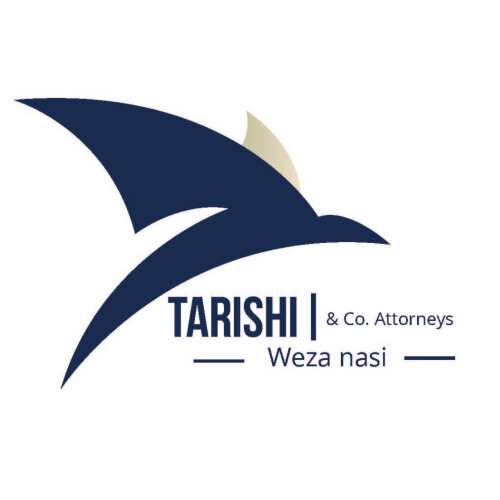Best Mining Law Lawyers in Dar es Salaam
Share your needs with us, get contacted by law firms.
Free. Takes 2 min.
List of the best lawyers in Dar es Salaam, Tanzania
About Mining Law in Dar es Salaam, Tanzania
Mining Law in Dar es Salaam, Tanzania forms the foundation for the regulation and management of mineral resources within the country’s borders. The sector is guided by the Mining Act, which is regularly updated to reflect changes in policy and market demands. Given that Dar es Salaam is the nation's commercial hub, many companies involved in exploration, extraction, and trading of minerals have their legal and administrative operations here. Mining Law governs the rights and obligations of prospectors, miners, landowners, investors, and the Tanzanian government. It addresses the acquisition of mining licenses, environmental management, community rights, dispute resolution, taxation, and compliance requirements.
Why You May Need a Lawyer
There are various reasons why individuals or companies may need a lawyer specializing in Mining Law in Dar es Salaam, Tanzania. Some common situations include:
- Applying for or renewing mining licenses and permits
- Negotiating joint ventures or partnerships in mining projects
- Handling disputes over land use, access, or compensation with communities or landowners
- Ensuring compliance with local, environmental, tax, and labor laws
- Responding to government investigations or audits
- International investors needing advice on Tanzanian regulatory requirements
- Drafting and reviewing contracts with suppliers, contractors, or government authorities
- Handling litigation or arbitration relating to mining activities
Working with a qualified legal professional helps protect your interests, avoid costly errors, and ensures you adhere to all necessary regulations.
Local Laws Overview
Mining activities in Dar es Salaam operate primarily under the Mining Act of 2010 as amended, along with its regulations. Here are some key points relevant to Mining Law:
- Licensing: Different types of mining licenses exist, such as prospecting, special mining, primary mining, and gemstone licenses. Each involves its own application process and qualifying criteria.
- Local Content Requirements: A percentage of goods, services, and jobs must be sourced domestically to benefit Tanzanians.
- Environmental Requirements: Environmental Impact Assessments (EIA) and clearances from NEMC are mandatory before commencing any significant mining operations.
- Royalties and Taxes: The law prescribes specific royalty rates payable to the government on minerals extracted and exported, along with corporate taxes and levies.
- Land Acquisition: Mining rights may need to be obtained separately from land rights, and compensation may need to be provided to affected landowners or communities.
- Community Rights: Laws require fair compensation and resettlement processes if communities are affected by mining activities.
- Local Participation: Recent reforms require government stakeholding in large mining projects, and outline rules for foreign investment and shareholding.
- Dispute Resolution: Mining disputes may be resolved through local courts, tribunals, or arbitration.
Frequently Asked Questions
What is required to obtain a mining license in Tanzania?
Applicants must submit a formal application to the Mining Commission, including details of the mineral sought, proof of technical competence, financial capacity, an EIA, and land access agreements where applicable.
Can foreign investors own mining rights in Tanzania?
Yes, foreign investors can own mining rights, but there are restrictions and requirements for government participation in large-scale projects, as well as local content requirements.
What types of mining licenses exist?
Licenses include prospecting licenses, primary mining licenses, special mining licenses (for large-scale operations), and gemstone mining licenses, each with specific eligibility and obligations.
Are there environmental regulations that must be followed?
Yes, all mining projects must undergo Environmental Impact Assessments and obtain approvals from the National Environment Management Council (NEMC) before operations begin.
How are mining disputes resolved?
Disputes may be settled through negotiation, the Mining Tribunal, local courts, or arbitration, depending on the nature of the disagreement and contract stipulations.
What royalties or taxes apply to mining operations?
Royalties vary by mineral type and are paid to the government, in addition to standard corporate taxes and other statutory levies.
What happens if local communities are affected by mining?
Mining companies are required to engage communities, provide fair compensation for any losses, and may need to follow resettlement processes in accordance with Tanzanian law.
Can I mine on any land I purchase?
No, mineral rights are separate from land ownership. You must obtain the relevant mining license even if you own the land, and not all land is open for mineral extraction.
How long does it take to process a mining license?
Processing times can vary depending on the type of license, completeness of submission, and whether environmental and land clearances are required. It may take several months.
What are the risks of mining without proper licensing?
Mining without the required permits is illegal and can result in substantial penalties, including fines, confiscation of minerals and equipment, and potential criminal charges.
Additional Resources
For further information and support, consider reaching out to the following:
- The Mining Commission: The main regulatory body overseeing mining activities in Tanzania.
- Ministry of Minerals: Sets policy and provides oversight for the mining sector.
- National Environment Management Council (NEMC): Responsible for Environmental Impact Assessments.
- Tanzania Chamber of Mines: An industry organization that provides support to mining stakeholders.
- Law Society of Tanzania: For referrals to qualified legal professionals with mining law expertise.
Next Steps
If you need legal assistance with Mining Law in Dar es Salaam, Tanzania, start by gathering all relevant documents and information about your mining project or interests. Contact a qualified lawyer who specializes in mining or natural resources law with experience in Tanzanian regulations. Clearly outline your objectives and any issues you are facing. The lawyer can assess your situation, provide advice on requirements and compliance, assist with applications or dispute resolution, and represent you before authorities or in legal proceedings. Engage early to avoid common pitfalls and protect your interests at every stage of your mining venture.
Lawzana helps you find the best lawyers and law firms in Dar es Salaam through a curated and pre-screened list of qualified legal professionals. Our platform offers rankings and detailed profiles of attorneys and law firms, allowing you to compare based on practice areas, including Mining Law, experience, and client feedback.
Each profile includes a description of the firm's areas of practice, client reviews, team members and partners, year of establishment, spoken languages, office locations, contact information, social media presence, and any published articles or resources. Most firms on our platform speak English and are experienced in both local and international legal matters.
Get a quote from top-rated law firms in Dar es Salaam, Tanzania — quickly, securely, and without unnecessary hassle.
Disclaimer:
The information provided on this page is for general informational purposes only and does not constitute legal advice. While we strive to ensure the accuracy and relevance of the content, legal information may change over time, and interpretations of the law can vary. You should always consult with a qualified legal professional for advice specific to your situation.
We disclaim all liability for actions taken or not taken based on the content of this page. If you believe any information is incorrect or outdated, please contact us, and we will review and update it where appropriate.













